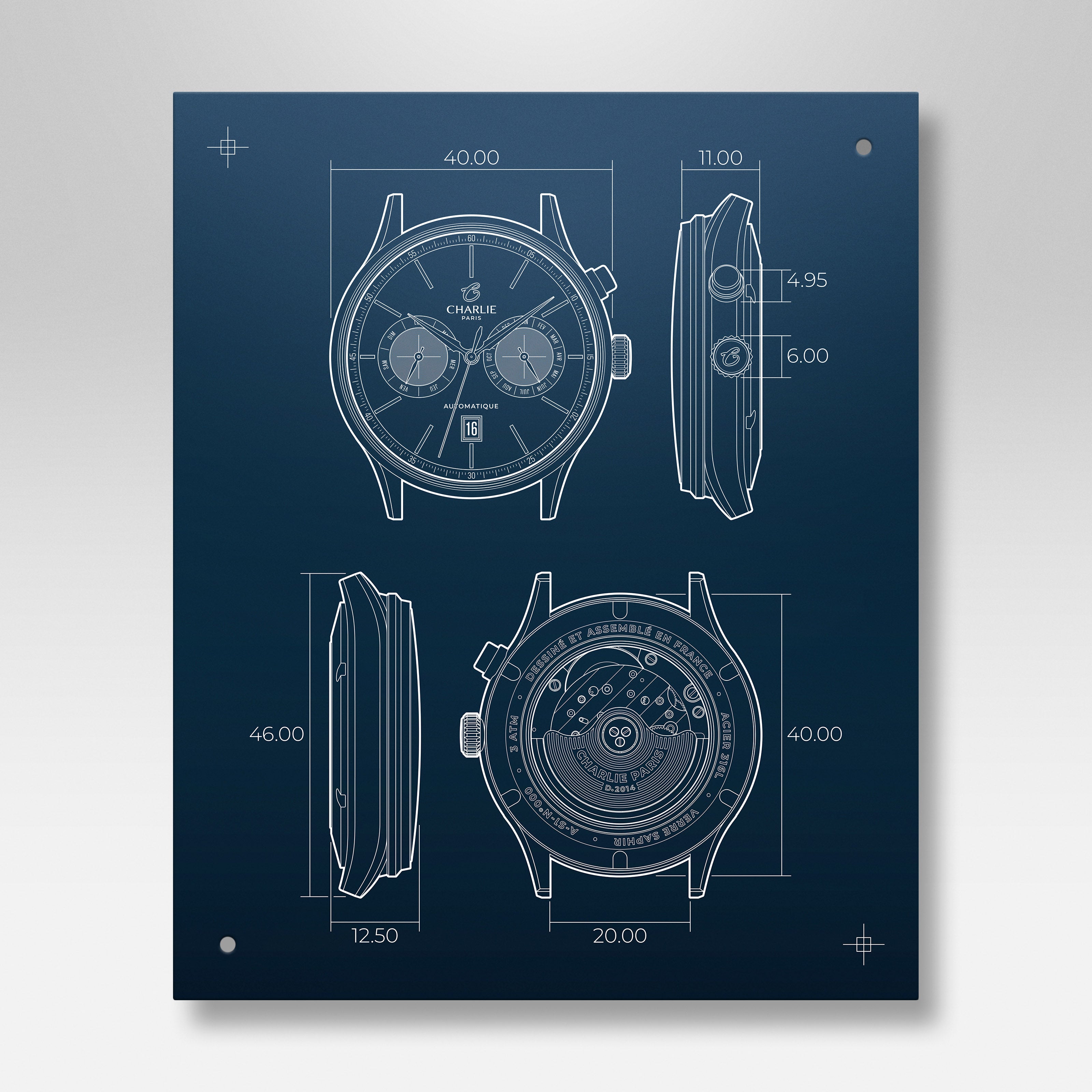
What does "Swiss made" mean on a watch?
The "Swiss made" mention is well known and you may have already come across it but do you know what is behind this mention? Swiss watches have a good reputation all over the world because of their precise know-how. The "Swiss Made" label does not mean that the parts of the mechanical watch or the automatic women's watches are all Swiss made. So, how do you know what a Swiss made timepiece is really worth? Team Charlie Paris, sheds light on the subject and presents what this label really means.
The origins of the Swiss made label
A symbol of prestige, innovation and impeccable quality, a watch labeled "Swiss made" requires very specific criteria. The Swiss government has therefore put in place a law to protect this designation and to guarantee its integrity in order to avoid misuse in the watch industry. Swiss made originated in the 17th century when the Geneva watchmakers' guild decided to affix a hallmark to its watches to certify their quality. The label was formalized at the end of the 19th century. In the 1880s, Swiss watchmakers were faced with American competition. They decided to create their own certification, which they called Swiss made
Swiss made watches: what they represent
The indications "Swiss made", "Swiss", "Suisse" are governed by an ordinance (232.119) of the Swiss Federal Council. The ordinance of the Swiss Federal Council of August 28, 1992 establishes precise specifications in which are listed all the requirements of the famous label. In 2007, the watchmaking federation wished to reinforce the rules inherent to "Swiss Made". The Swiss law defines first the Swiss watch and then the Swiss movement.
According to this ordinance a Swiss watch is a watch that meets the following conditions:
- Integrating a Swiss movement
- Integrating an embedded Swiss movement
- Its final control is made by the manufacturer in Switzerland
- At least 60% of the cost price must be generated in Switzerland
A movement is considered Swiss if it meets the following conditions:
- The movement must be assembled in Switzerland
- It must be controlled by the manufacturer in Switzerland
- 60% minimum of the cost price must be generated in Switzerland
- It must be Swiss made for at least 50% of the value of all the constituent parts but without the cost of the assembly
Thus, it is not because a watch is of Swiss origin that it benefits from the "Swiss Made" certification. For this to happen, it must meet all of the above criteria. If, for example, the watch is assembled in Switzerland but the majority of its parts were manufactured in another country, then it cannot claim the label.











Leave a comment
This site is protected by hCaptcha and the hCaptcha Privacy Policy and Terms of Service apply.